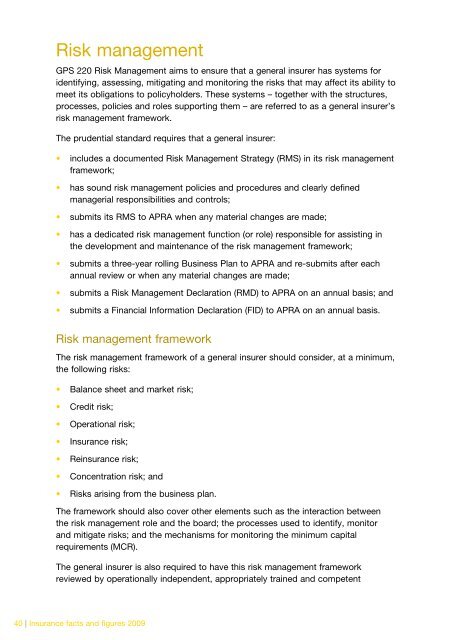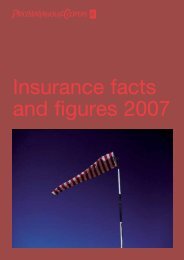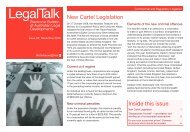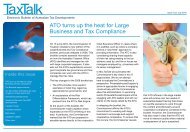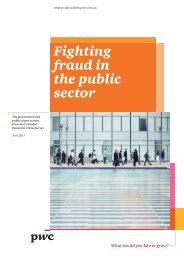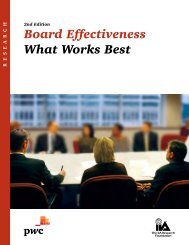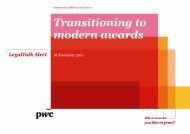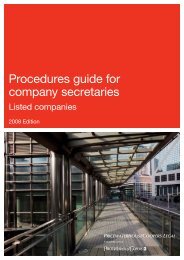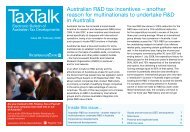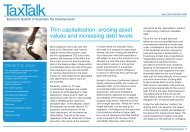Insurance - PricewaterhouseCoopers
Insurance - PricewaterhouseCoopers
Insurance - PricewaterhouseCoopers
Create successful ePaper yourself
Turn your PDF publications into a flip-book with our unique Google optimized e-Paper software.
Risk management<br />
GPS 220 Risk Management aims to ensure that a general insurer has systems for<br />
identifying, assessing, mitigating and monitoring the risks that may affect its ability to<br />
meet its obligations to policyholders. These systems – together with the structures,<br />
processes, policies and roles supporting them – are referred to as a general insurer’s<br />
risk management framework.<br />
The prudential standard requires that a general insurer:<br />
•<br />
•<br />
•<br />
•<br />
•<br />
•<br />
•<br />
includes a documented Risk Management Strategy (RMS) in its risk management<br />
framework;<br />
has sound risk management policies and procedures and clearly defined<br />
managerial responsibilities and controls;<br />
submits its RMS to APRA when any material changes are made;<br />
has a dedicated risk management function (or role) responsible for assisting in<br />
the development and maintenance of the risk management framework;<br />
submits a three-year rolling Business Plan to APRA and re-submits after each<br />
annual review or when any material changes are made;<br />
submits a Risk Management Declaration (RMD) to APRA on an annual basis; and<br />
submits a Financial Information Declaration (FID) to APRA on an annual basis.<br />
Risk management framework<br />
The risk management framework of a general insurer should consider, at a minimum,<br />
the following risks:<br />
•<br />
•<br />
•<br />
•<br />
•<br />
•<br />
•<br />
Balance sheet and market risk;<br />
Credit risk;<br />
Operational risk;<br />
<strong>Insurance</strong> risk;<br />
Reinsurance risk;<br />
Concentration risk; and<br />
Risks arising from the business plan.<br />
The framework should also cover other elements such as the interaction between<br />
the risk management role and the board; the processes used to identify, monitor<br />
and mitigate risks; and the mechanisms for monitoring the minimum capital<br />
requirements (MCR).<br />
The general insurer is also required to have this risk management framework<br />
reviewed by operationally independent, appropriately trained and competent<br />
40 | <strong>Insurance</strong> facts and figures 2009


